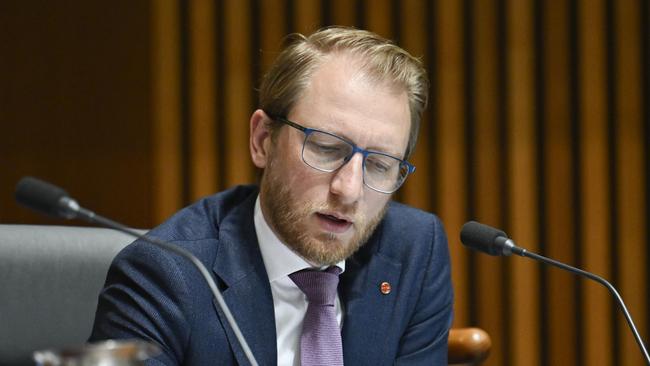Coalition proposes ‘voluntary’ job cuts
The Coalition has put voluntary redundancies on the table to cut the public service by 41,000 jobs, with the party continuing to face scrutiny from Labor and the union movement over its policy.

The Coalition has put voluntary redundancies on the table to cut the public service by 41,000 jobs, with the party continuing to face scrutiny from Labor and the union movement over its policy.
And in the face of questions over whether the cuts could exceed the 41,000 headcount in the allocated five-year time frame, the opposition also indicated the hiring freeze would end once the target was reached.
Coalition spokesman James Paterson said on Friday the Liberals would “cap the size of the Australian Public Service” and reduce its numbers, confirming for the first time voluntary redundancies could be used if need be. “We will reduce the numbers back to the levels they were three years ago through natural attrition and voluntary redundancies,” he told ABC.
Clarity over measures the Coalition would use follows Peter Dutton backflipping on the intention to ban working from home for some public servants.
Community and Public Sector Union national secretary Melissa Donnelly said “every other day we have a different member of the Coalition announcing a different version of their public service cuts”.
“However you get there, it’s still 41,000 jobs on the chopping block and it’s still everyday Australians who’ll suffer,” she said.
The CPSU also raised concern that the reliance on natural attrition over five years would see more like 60,000 jobs shed.
But a Coalition source said the policy hinged on the number of jobs it wanted to shrink the APS by, rather than the five-year time frame, indicating Mr Dutton could end the hiring freeze early should 41,000 people leave before the five years was up.
Despite the Coalition promising not to cut “frontline services” and rather focus on shrinking the bureaucracy in Canberra, Labor has continued to attack the policy and allege it will mean fewer jobs in critical areas such as the NDIS and veterans’ affairs.







To join the conversation, please log in. Don't have an account? Register
Join the conversation, you are commenting as Logout